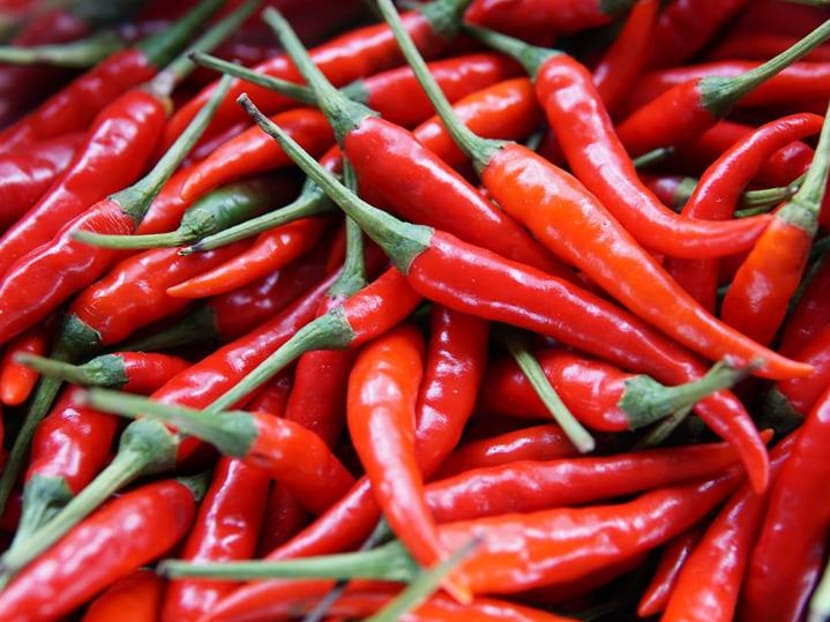IT MAKES YOU SWEAT
Spicy food lovers are likely to be familiar with one immediate physical reaction – sweating.
That’s because some of the spiciest foods contain compounds that bind to nerve receptors along the gastrointestinal tract, including the mouth, that are activated by heat.
Chillies, the flavourful backbone of many spicy dishes, contain the compound capsaicin, which binds to those receptors when eaten and then sends a pain signal to the brain, as Dr Julius discovered in his Nobel Prize-winning work on the topic.
The main chemicals found in peppercorns, horseradish and mustard also bind to the same receptors, albeit less potently.
These nerves send similar signals to the brain as they would if you came into contact with actual fire, which is why you might start sweating or become flushed; that’s the body’s way of cooling itself down.
“Capsaicin fools your body into thinking the temperature has risen, and so your brain thinks it needs to shed heat,” Dr Julius said. “In humans, we mostly do that by sweating.”
IT CAN CAUSE GASTROINTESTINAL DISTRESS
Eating spicy food in moderation is generally safe for people who don’t already have stomach issues. However, it can cause inflammation to the areas that aid digestion and can sometimes lead to heartburn, stomachaches or diarrhoea.
People with gastritis, which occurs when the lining of the stomach is inflamed, may be especially susceptible to increased abdominal pain.

